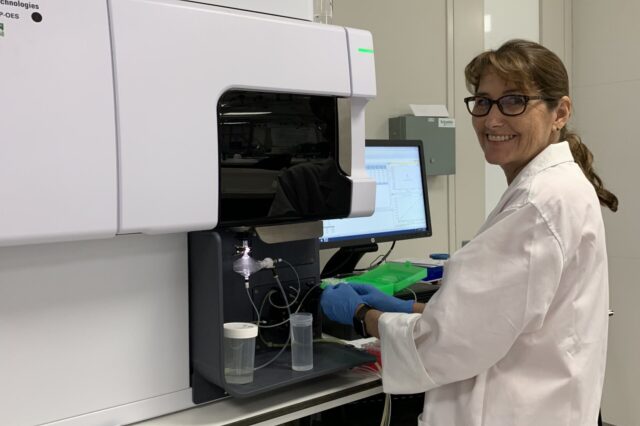UF Nursing research to study milk production to mark National Breastfeeding Month

UF College of Nursing researcher Marion Bendixen, Ph.D, M.S.N, R.N., IBCLC, will use her lactation research expertise from two continents to study new ways to help NICU babies get the nutrients they need.
For this year’s National Breastfeeding Month, a University of Florida College of Nursing researcher has pledged to study how to give the tiniest patients the most nutrients possible.
For babies whose mothers are unable to breastfeed due to prematurity or illness, breast pumps can provide a much-needed lifeline. However, some researchers believe that milk production for these women could be affected by several factors, which may change how clinicians care for their infants
To help neonatal intensive care unit babies get the nutrients they need, UF College of Nursing assistant professor Marion Bendixen, Ph.D, M.S.N, R.N., IBCLC, and a team of interdisciplinary researchers this month will launch a study to investigate lactation outcomes in mothers who pump to provide milk to feed their infants.
Over the course of a three-year, $412,000 grant from the National Institute of Nursing Research, part of the National Institutes of Health, Bendixen will study a diverse group of mothers whose babies were admitted to the NICU for their first 14 days after birth.
Bendixen’s research builds on her experience on a second continent — for the past three months, she has worked as a visiting faculty member at the University of Western Australia Geddes Hartman Human Lactation Research Group.
By shadowing a lactation consultant researcher caring for breastfeeding families and processing milk samples overseas, Bendixen has learned new techniques to use in her lactation research. Using the insights she gleaned, she plans to investigate how the body’s cells produce different amounts of milk based on changes to their environment.
According to Bendixen, gestational age, the length of time that an infant remains in the womb, may be a key factor influencing when a mother produces milk, as well as how much. As mothers get closer to giving birth, milk-producing mammary gland cells may mature with each passing day, resulting in greater milk volume.
However, she and her team believe that how often or how long a breast pump is used during this period also may affect the amount of milk a mother is able to produce.
“Breast pump usage may impact how the mammary gland develops during the postpartum window,” Bendixen said. “We hope to observe whether breast pumps have any impact on how these cells develop, providing insight that will help clinicians ensure that these gland cells are fully activated and can produce enough milk for the baby in the months to follow.”
After evaluating how milk volumes change after birth, Bendixen’s team will use biomarkers, molecules that can be used as signs that a process is taking place, to determine if there are biological signs that show a mammary gland is activated. The group also intends to examine how these biomarkers relate to the amount of milk produced by each mother.
Bendixen said her team’s work is the first step in designing a research program that can provide personalized lactation care to mothers who are at risk of not producing enough milk for their babies.
“We look forward to developing a research plan to improve maternal and infant health, as well as advance health equity,” she said.
